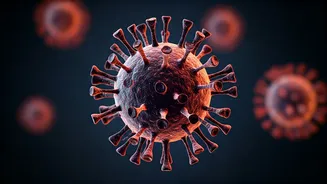Prioritize Protein Intake
A key element in reducing belly fat involves focusing on what you eat. One of the most effective strategies is to increase your protein intake. Protein
helps in several ways. Firstly, it keeps you feeling full for longer, which can reduce overall calorie consumption and help manage hunger. Secondly, your body uses energy to digest protein, which helps boost metabolism. Including protein in every meal and snack is essential for anyone aiming to lose belly fat. Consider including protein-rich foods such as lean meats, eggs, and legumes, and ensure that protein constitutes a significant portion of your daily dietary intake to achieve the desired results. This conscious adjustment to one's diet significantly aids the reduction of abdominal fat by optimizing metabolism and controlling appetite.
Incorporate Fiber-Rich Foods
Along with protein, dietary fiber also plays a crucial role in fat loss, particularly in the abdominal area. Fiber, especially soluble fiber, aids in reducing belly fat by promoting fullness and slowing down the absorption of nutrients. This process helps regulate blood sugar levels, preventing spikes that lead to fat storage. Foods high in fiber include fruits, vegetables, and whole grains. By adding these foods to your daily diet, you can increase the feeling of fullness and reduce overall calorie intake, which facilitates fat loss. The incorporation of fiber-rich foods is a simple yet highly effective method in the journey towards a trimmer waistline, supporting both short-term and long-term health objectives.
Embrace Regular Hydration
Drinking enough water can be a surprisingly effective way to slim down your belly. Water helps in various ways, including boosting metabolism, which helps the body burn more calories. It also aids in regulating your appetite, potentially leading to reduced calorie intake. Drinking water before meals is a simple technique that may reduce the amount of food consumed during those meals. It’s important to keep your body well-hydrated throughout the day. Aim to drink at least eight glasses of water a day to reap the maximum benefits. Regularly staying hydrated ensures that metabolic functions are at their optimum, which contributes to more effective fat loss and general wellbeing. Staying hydrated is also crucial for overall well-being, making it easier to maintain a healthy lifestyle.
Practice Mindful Eating
Mindful eating, an often-underestimated component of weight management, emphasizes paying close attention to your food. The practice focuses on the awareness of the sensory experiences while eating, such as the taste, smell, and texture of your food, and paying attention to internal hunger and satiety cues. This involves eating slowly, savoring each bite, and avoiding distractions such as television or phones. By eating mindfully, you can be more aware of when you are full, preventing overeating and aiding in weight loss. Mindful eating also helps reduce stress-related eating, which is a common cause of weight gain. Implementing this practice allows you to make healthier food choices and foster a better relationship with food, which in turn facilitates effective belly fat reduction.
Prioritize Adequate Sleep
Getting enough sleep is essential for overall health and plays a significant role in reducing belly fat. When you don't get enough sleep, your body produces more cortisol, often referred to as the stress hormone. Elevated cortisol levels can lead to increased abdominal fat storage. Aim for 7-8 hours of sleep each night to help regulate your hormones and support your metabolism. Sleep deprivation also affects your appetite, leading to cravings for unhealthy foods. Creating a consistent sleep schedule, a relaxing bedtime routine, and a sleep-friendly environment can enhance sleep quality. Improving sleep habits is critical for anyone looking to lose belly fat, supporting both the physical and mental well-being of the body.
Limit Processed Foods
Cutting back on processed foods is a straightforward method for reducing belly fat. Processed foods often contain high levels of added sugars, unhealthy fats, and calories, which contribute to weight gain, especially in the abdominal area. These foods often lack essential nutrients and fiber, leaving you feeling less satisfied and more likely to overeat. Reducing the intake of processed foods involves a shift toward whole, unprocessed foods such as fruits, vegetables, lean proteins, and whole grains. Being mindful of food labels to check for added sugars, sodium, and unhealthy fats is crucial. By making this shift, you will automatically limit your calorie consumption and improve your nutrient intake, which supports your weight loss goals.
Incorporate Daily Exercise
Incorporating exercise into your daily routine is fundamental in the fight against belly fat, even without visiting a gym. Cardio exercises, such as brisk walking, jogging, or cycling, are effective at burning calories and decreasing overall body fat. Combining cardio with strength training helps build muscle mass, which further increases your metabolism. Aim for at least 30 minutes of moderate-intensity exercise most days of the week. Incorporate activities that you enjoy to make exercise a sustainable part of your life. This could include dancing, hiking, or playing sports. Regularly exercising is not only important for fat loss, but also beneficial for improving cardiovascular health, boosting energy levels, and enhancing overall well-being.















